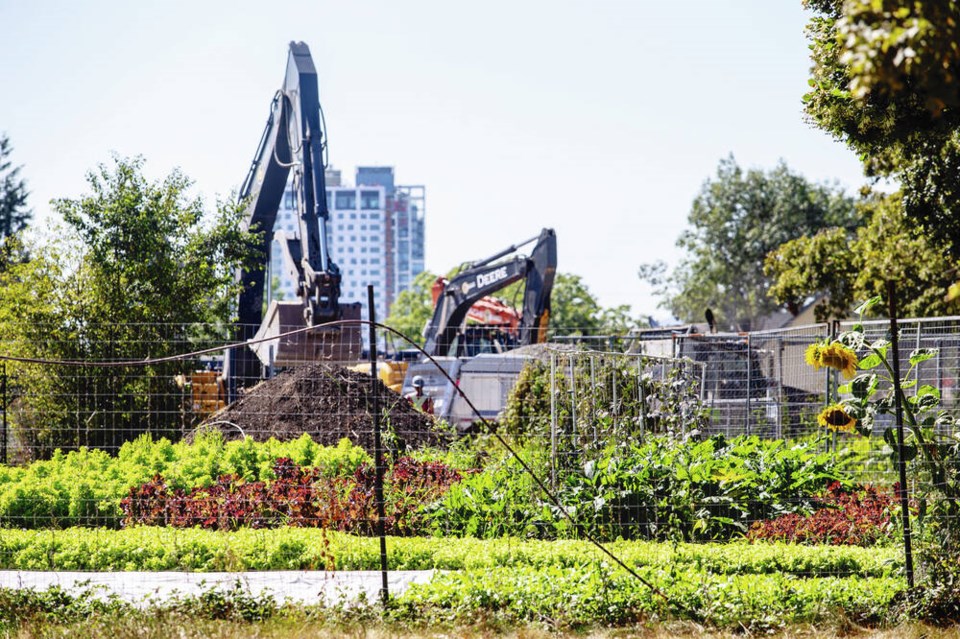About 60 per cent of the learning farm at Vic High was dismantled for the installation of a storm drain this month, but gardeners from the Mason Street City Farm say the school garden will be rebuilt once the upgrade project is finished.
Garden co-ordinator Jesse Brown said he and the Greater Victoria School District (SD61) — which is in the midst of $79.7-million expansion and upgrading project at the school — reached an agreement about the farm that allowed a portion to be kept functional for the remainder of the season.
“The outcome has turned out better than I had hoped,” Brown said. “But it was hard to see excavators turning over the soil there.”
The learning farm was created in 2017 as a joint operation between Mason Street City Farm and Farm to School B.C. as both an educational tool and a functional produce business.
When Brown learned about the digging needed to install the drain, much of the crops in the plot had been pre-sold, and he feared losses up to $20,000.
Brown met SD61 representatives twice to determine a course of action and potential compensation. He wouldn’t share the final figure, but said that “financially, the project will be solvent for the season.”
Those who had pre-purchased fruits and vegetables from the farm will either receive a refund, produce from remaining crops, produce from other local farms or a combination of the three.
SD61 and construction staff helped the gardeners to save and secure topsoil and keep what’s remaining of the garden operational. Brown said he hopes to begin soil remediation by early September.
“It’s a living system. This is a regenerative farm. There’s seven years of fungus and microbes all working together to build an ecosystem and that ecosystem has been severely damaged,” he said.
“But the nutrients are still in there and we’re hopeful that we’ll able to grow it back.”
Along with vegetables, the garden included a small Garry oak meadow and Indigenous plant and medicine garden, which included crabapple trees, salmon berries, sage and more.
The Garry oak meadow was saved, but most of the edible and medicinal plants were moved to other schools, Brown said.
The garden had been maintained primarily by Vic High faculty and students.
“It was quite sad for them and myself to see the garden go,” Brown said. “The big trench they put in for this site is right where that garden was. They had to move it.”
There’s a tentative plan to rebuild the garden with more public access in the future.
Overall, Brown feels the outcome is a positive one. He said the farm is renegotiating a memorandum of understanding with the school district and he looks forward to continuing the mutually beneficial partnership.
“Land like this is absolutely precious and very rare,” he said.
“It feels like a positive outcome that we’ll be able to rebuild from and continue this relationship.”
ngrossman@timescolonist.com
>>> To comment on this article, write a letter to the editor: letters@timescolonist.com



